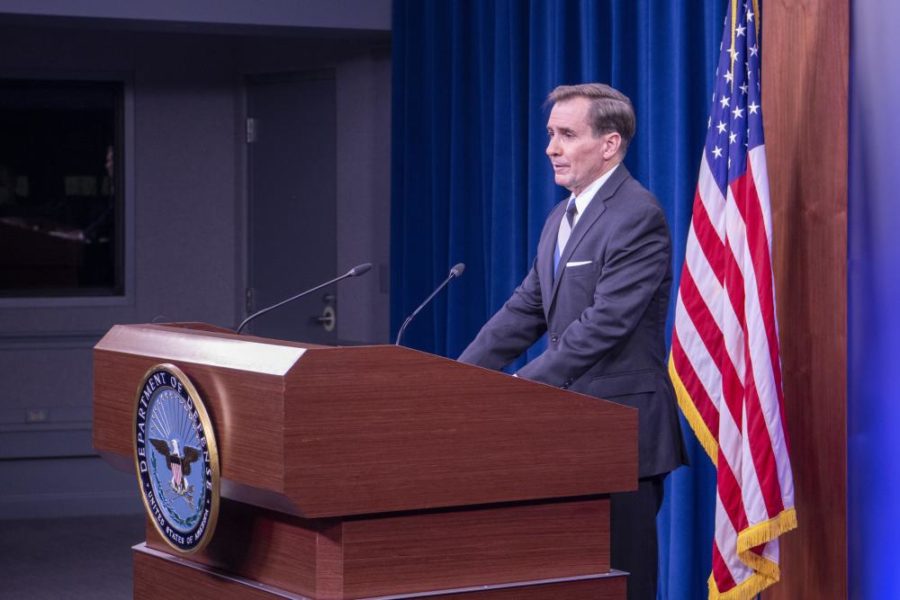A pair of combatant commanders reviewed the Air Force Inspector General’s report on the erroneous Aug. 29 airstrike that killed 10 civilians in Kabul, Afghanistan, and made no recommendations related to accountability, the Defense Department’s top spokesperson said Dec. 13.
U.S. Central Command head Gen. Kenneth F. McKenzie Jr. and U.S. Special Forces Command boss Gen. Richard D. Clarke both reviewed the report from Air Force IG Lt. Gen. Sami D. Said and reported back a variety of recommendations to Defense Secretary Lloyd J. Austin III, Pentagon Press Secretary John F. Kirby said. Not included, however, was any recommendation of punishment or discipline for the service members involved in the strike.
“None of their recommendations dealt specifically with issues of accountability,” Kirby said in a press briefing. “The Secretary reviewed their recommendations—I won’t get into all of them; some of them are understandably classified—but he approved their recommendations. So I do not anticipate there being issues of personal accountability to be had with respect to the Aug. 29 airstrike.”
Kirby later confirmed that Austin is not calling for any accountability measures in relation to the strike, which came after 13 U.S. service members were killed in a terrorist attack at Hamid Karzai International Airport.
Austin’s decision, Kirby added, was in line with the conclusion reached by McKenzie and Clarke—that the airstrike, which killed aid worker Zemari Ahmadi and nine members of his family, was caused by a breakdown in process and execution, “not the result of negligence, not the result of misconduct, not the result of poor leadership,” Kirby said.
As to whether lower-level commanders will be able to implement any accountability measures as a result of the strike, Kirby deferred to McKenzie and Clarke.
The original investigation by Air Force Inspector General Lt. Gen. Sami D. Said found that a strike cell in Qatar, studying video footage for eight hours, believed Ahmadi’s white Toyota Corolla was a vehicle of interest and that he was involved in planning a terrorist attack against American service members at Hamid Karzai International Airport in Kabul. Only three days earlier, the 13 Americans had been killed in a terrorist attack at the airport checkpoints, and the investigation found that the attack, in part, led to confirmation bias and the erroneous strike, though no laws were broken.
Shortly after Said’s report was released in early November, the New York Times reported that in a 2019 strike against ISIS in Baghuz, Syria, dozens of civilians were killed along with 16 fighters before U.S. Central Command allegedly covered up wrongdoing and disallowed an investigation of war crimes.
A few days after the Times report, Austin briefed the media on civilian casualties and said DOD has “more work to do in that regard, clearly.” When asked if he would impose disciplinary action or otherwise hold people accountable, Austin said that “leaders in this department should be held to account for high standards of conduct and leadership.”
In the case of the Afghan airstrike, Austin did not believe accountability measures were needed, Kirby said. Generally speaking, though, Kirby said the department is open to changes “to the way we analyze information and intelligence, act on that intelligence, target, and … the actual execution procedures of a strike.”
No such changes were announced Dec. 13.
Dr. Steven Kwon, the head of the aid group Nutrition & Education International, where Ahmadi worked, issued a statement calling the lack of discipline for the airstrike “shocking,” according to CNBC.
“How can our military wrongly take the lives of 10 precious Afghan people and hold no one accountable in any way?” Kwon said. “What message is it sending to family members who lost their loved ones—and my employees who lost a beloved colleague?”
Kwon’s statement also criticized the Pentagon for not yet evacuating family members of those killed from Afghanistan or paying reparations. Kirby responded by saying DOD remains committed to both options.
“We are working very hard with [Kwon] and his organization to affect the relocation of the family members,” Kirby said. “And I think as you can understand that, with respect to an ex gratia payment, which we’re absolutely willing to make, we want to make sure that we do it in the most safe and responsible way, so that we know it’s getting to the right people and only to the right people.”
